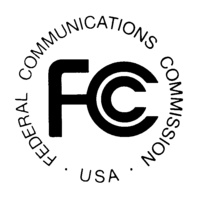 Tech companies and television networks are feuding over the use of so called "white spaces" in the television spectrum for wireless devices. White spaces are frequency ranges that are in the same range designated for television but not currently used by broadcasters. Companies ranging from Google to Microsoft to Phillips Electronics would like to use for future wireless devices.
Tech companies and television networks are feuding over the use of so called "white spaces" in the television spectrum for wireless devices. White spaces are frequency ranges that are in the same range designated for television but not currently used by broadcasters. Companies ranging from Google to Microsoft to Phillips Electronics would like to use for future wireless devices.
On Thursday an Information Technology Industry Council (ITI) accused executives from CBS, NBC, News Corp (which owns Fox), and Disney (owner of ABC) of intentionally misrepresenting the proposed use of frequencies in the broadcast televison range. Brian Peters, ITI's Director of Government Relations said the executives are making "unfounded claims of interference designed to confuse consumers and policymakers."
The comments stem from a letter sent to the FCC by the television executives which states "Current proposals based on 'sensing' to avoid interference could cause permanent damage to over-the-air digital television reception." Interference sensing technology is intended to ensure white space devices can avoid broadcasting on those frequencies. In July, a prototype device was submitted to the FCC, but wasn't able to pass agency testing, resulting in the rejection of the white space proposal for the time being.
Although Peters claims broadcasters are letting the National Association of Broadcasters, a trade association and lobbying organization funded in part by the networks, decide on their agenda, the networks may have a case. The failed FCC tests in July may have been due to hardware malfunctions, but that seems like a real-world scenario that the FCC should consider. As wireless devices become more common and transmission/reception ranges become greater, a single malfunctioning device could interfere with television reception in numerous households.
Of course, a readily available, sensible argument has never stopped corporate executives from going to extremes before, and this issue is no exception. The broadcasters' letter states that "Interference in the digital world will cause a digital picture to freeze and become unwatchable," but also adds that "Current proposals based on 'sensing' to avoid interference could cause permanent damage to over-the-air digital television reception."
Despite the hyperbole of their argument, it seems reasonable to require manufacturers to prove that in addition to not causing interference when working properly, their white space devices would also not cause problems when malfunctioning. Until they can do that it's unlikely, and maybe unreasonable to expect the FCC to allow the technology.
Source: PC World












